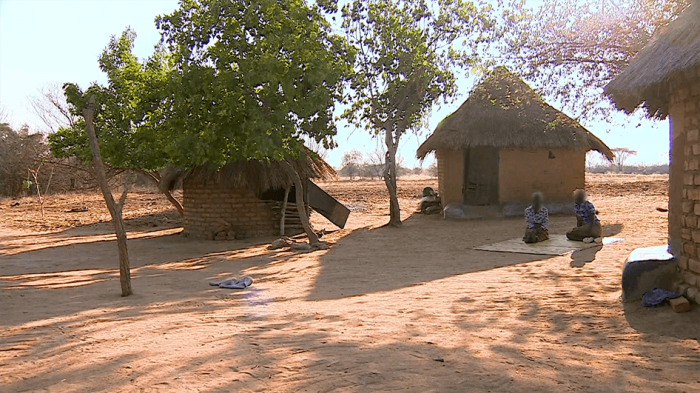Video: Lands, Houses of Widows Stolen by Relatives in Zimbabwe
Read a text description of this video
Widows of brothers
They [our in-laws] took over large portions of our land. Every day they threaten us, telling us that as widows we have no right to the land and that we should leave.
Bethany Brown
Researcher
Human Rights Watch
Around the world, millions of older women and older people generally, routinely experience violations of their human rights. Each year, thousands of widows across Zimababwe have their property grabbed by their husband’s relatives. They lose their homes, they lose their fields, they lose everything.
Maliyaziwa Malunga
Widow who lost property to in-laws
They take all the goods we are using with my husband, even cars, properties. They left me with nothing. //A marriage certificate offers protection sometimes, obviously.
Bethany Brown
Researcher
Human Rights Watch
A widow would need to prove that she was married in order to be able to fend off relatives’ property grabbing in courts. Estimates are that up to 70% of marriages in Zimbabwe are unregistered, customary law unions.
Slyvia Chirawu
National Coordinator
Women and Law in Southern Africa
Research and Education Trust (WLSA)
Imagine the process a woman that doesn’t have a marriage certificate has to go through. She has to go to the court, convince the court that she was married. And sometimes even if she might have five, six children, the relatives turn around and say she wasn’t married.
Priscilla Misihairabwi-Mushonga
Widow & Member of Parliament
An African marriage has always been understood as a communal marriage. It used to work when it was being understood if the husband dies, what the other family members are doing in coming in and taking responsibility //however that has now been changed because of greed because of the general changes that have happened in society.
Widows of Brothers
If our husbands were alive, they [the in-laws] would not do what they are doing. This harassment is happening because our husbands died.
Bethany Brown
Researcher
Human Rights Watch
If a widow overcomes that initial hurdle overcomes of getting herself to court, she still will face the struggle to be able to pay for transportation and court fees.
Lucia Masuka Zanhi
Legal Resources Foundation
The court fees also, they’re a challenge and I know authorities will say but perhaps for some cases it is just $5 or it’s a dollar. But for the groups that we’re talking about, the groups that we interact with, the rural population and even some of those who are in the urban areas, they are not able to raise the $1 or the $5 that we’re talking about so I think it’s one area again that then hinders access to justice.
Bob Isaiah Muchadya Dzere
Nhaka African Worldview Trust, NGO for widow’s rights
We have to advocate, that this has to stop. // I think much more work should be done to do outreach work, advocacy so that the people are conscious about it, they’re educated about it. If my wife becomes a widow, I want her to miss my presence only. Not any other thing. She must have all the property with her and I am taking care that the property is not grabbed away from her. The registration of the house and the car it’s under her name.
Bethany Brown
Researcher
Human Rights Watch
Widows in Zimbabwe need to have access to information about their rights to property. They need to know about ways that they can defend their property through the court system if someone tries to grab it from them. And the government needs to make registration available for marriages of all types.
Widows of brothers:
It’s hard to be subjected to this kind of suffering when your husband dies.
Widows in Zimbabwe are routinely evicted from their homes and land, and their property is stolen by in-laws when their husbands die. The government of Zimbabwe should urgently take steps to protect widows from this practice. Human Rights Watch found that in-laws often tell women shortly after the deaths of their husbands that the relatives intend to take over the homes and lands or other property where the husband and wife had lived for decades. One widow quoted her brother-in-law’s words to her after her husband’s funeral, in front of the family that had gathered: “He said in my face, ‘You are rubbish and you will get nothing. I am taking everything.’”

